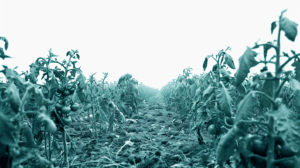In the fast-paced world of the food & beverage industry, Supply Chain Professionals often find themselves immersed in the intricacies of logistics, production, and distribution. However, one aspect that holds immense potential for shaping the quality, quantity, and timing of raw materials is agronomy—the science and practice of crop production. This is where the critical role of agronomy in raw material sourcing emerges.
Quality Assurance Starts in the Field
Quality assurance is not a process that begins at the production facility; it starts in the field. By actively engaging in agronomic practices, the food & beverage company can influence the quality of the raw materials at the source. Understanding the specific needs of crops, implementing sustainable farming practices, and ensuring compliance with quality standards contribute to a more robust and reliable agriculture supply chain.
For example, wheat is a staple crop and its nutritional content and baking characteristics are critical for the final product quality. When collaborating with farmers, Supply Chain Professionals can implement crop rotation practices, integrating legumes into the rotation cycle. This sustainable agronomic approach enhances soil fertility, reduces the risk of pests and diseases, and minimizes the need for synthetic fertilizers. The result is a higher-quality wheat crop with improved protein content and baking attributes.
Quantity Predictability
The unpredictability of crop yields can be a constant challenge for food supply chain planning. Advanced agrifood technologies empower food & beverage companies with real-time insights into the status of crops. This data-driven approach allows for more accurate demand forecasting, enabling informed decision-making about sourcing quantities in advance.
For instance, through consistent quantity checks conducted during the growing season, growers or scouts employed by the food & beverage company can estimate the expected yield at the season’s end. This estimation enables smoother food supply chain planning and enhances overall operational efficiency.
Optimizing Timing for Seamless Logistics
Timeliness is a critical factor in supply chain efficiency. By immersing themselves in the agricultural timeline, agriculture Supply Chain Professionals can gain a clearer picture regarding the timing of raw material arrivals. From planting schedules to harvest periods, understanding and influencing these timelines can result in a more synchronized and efficient supply chain.
Embracing Sustainability for Long-Term Viability
Sustainability has no doubt become a strategic imperative. Supply Chain Professionals who actively engage in agronomy can steer their organizations towards sustainable sourcing practices. By supporting regenerative agriculture, reducing environmental impact, and promoting ethical sourcing, Supply Chain Professionals can contribute not only to the success of their companies, but also to the long-term viability of the agricultural ecosystem.
In conclusion, the integration of agronomy into raw material sourcing is not just an option; it’s a strategic imperative. By understanding and influencing the agricultural intricacies of their supply chains, Supply Chain Professionals can revolutionize food & beverage supply chain planning, driving not only efficiency but also sustainability and long-term success.








